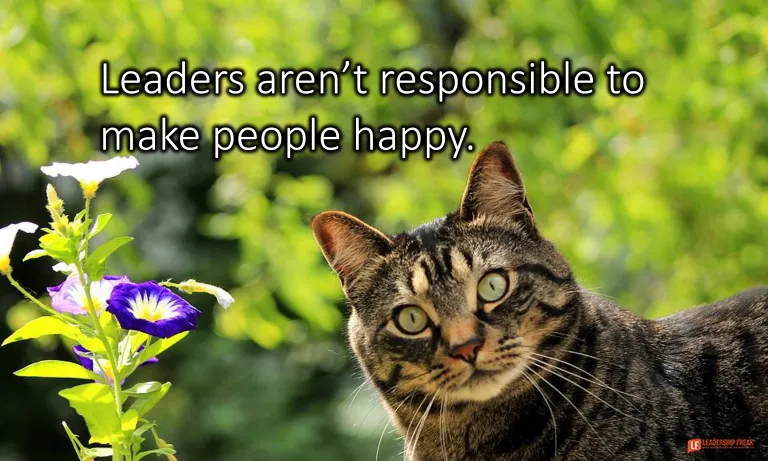As a leader, it’s helpful to understand what you are and what you aren’t responsible for. Taking on the wrong responsibilities can greatly lessen your leadership effectiveness and longevity. Dan Rockwell shares 4 surprising things leaders aren’t responsible for.
Guest post by Dan Rockwell
Stress goes up when you take responsibility for things you can’t control.
You’re doomed when you confuse ‘accountable for’ with ‘responsible for.

#1. Leaders aren’t responsible for results.
“Leaders are not responsible for the results. Leaders are responsible for the people who are responsible for the results.” @simonsinek
Leaders are accountable for results. Other people do the work.
The leader’s work is people. The people’s work is getting things done.
10 questions accountable leaders ask themselves
- How can I become the person I should be?
- How will I stop doing other people’s work?
- How do I honor and reward people who get stuff done?
- How can I hire the right people?
- How do I delegate effectively?
- How can I build trust on and with teams?
- How can I set clear goals, track progress, and remove obstacles?
- How can I get out of the way? What might I do that impedes progress?
- How can I maximize strengths and protect people from their weaknesses?
- What are the best methods for helping people improve?
Bonus question: How can I improve?
#2. Leaders aren’t responsible for employee engagement.
You can coerce conformity, but engagement is freely chosen.
You can create environments where engagement is more likely.
Leaders can:
Hire for engagement.
Invite engagement.
Reward engagement.
Honor engagement.
Punish disengagement.
Fire for disengagement.
#3. Leaders aren’t responsible to make people happy.
Happiness is a choice we make for ourselves.
You can create environments where happiness is easier to enjoy. You can’t make people happy.
- Help people achieve their goals.
- Connect purpose to work.
- Include relationship building in your daily goals.
#4. Leaders aren’t responsible to know all the answers.
You are responsible to help people find answers, not have answers.
Mark Miller said, “I would tell my younger self to stop trying to have all the answers.”

Recent Comments